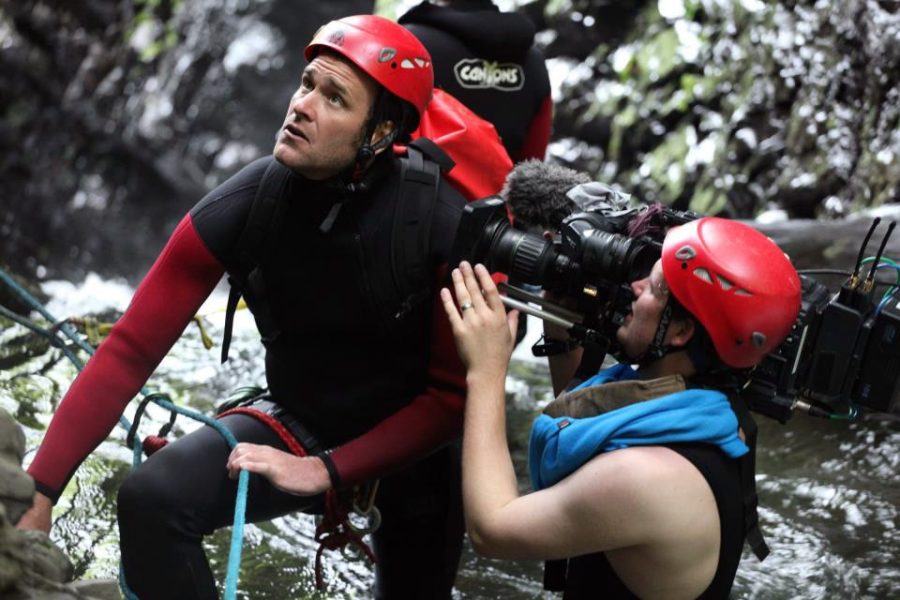Martin Pepper, a doctoral candidate at the UA, could tell you a thing or two about machete ambushes. He has survived four of them.
Pepper, co-host of the Science Channel’s newest show, “How the Earth Works,” premiering Oct. 9, is no stranger to the dangers that accompany research abroad. He recently returned from South America where he spent a year collecting sand samples from rivers to see the effect of erosion on the continent from the past two to three billion years.
“There was a mob that took me over in Ecuador,” Pepper said. “I was sleeping and minding my own business when all of a sudden they came into my tent with a couple of shotguns, a couple of machetes, and I thought, ‘I’m done.’ It ends up they thought I was some thief from the town over. When they saw I was a tourist … they realized it wasn’t me. They tried to put everything back neatly.”
The show is filmed on location in Japan, Indonesia, Italy, Iceland, Colorado and Northeast America and focuses on topics like volcanoes, tsunamis and the ice age.
Pepper began his career at the UA as an undergraduate swimmer studying psychology. Along with winning the NCAA title in the 100 butterfly, he was an undergraduate assistant in professor George Gehrels’ oceanography class.
“After he finished his undergraduate degree, he wasn’t quite sure what he wanted to do,” Gehrels said, “so we got him working in our laboratory and he was a great, great employee.”
After working in the lab, Pepper worked in his own boat shop in Tucson before getting his master’s degree in wildlife management while studying elk and cattle. He then moved to the Caribbean to be the site manager for a salt mining and cotton farming plantation left over from the slave trade, thinking he’d be in paradise, he said. But the management job was not as great as he’d expected.
“Fixing toilets is miserable no matter where you are,” Pepper said.
Pepper moved on and took a job in “the world’s best dive resort,” in Papua New Guinea.
The first day he landed, the resort owner warned him of ambushes, beheading, rioting security guards and, naturally, a plethora of machetes. Though it was paradise for a photographer, Pepper said the violence got the best of him and he moved to Australia to take pictures of biology research. While in Australia, he worked with troubled youth, instructing them on marine biology as well as traveled all over the country documenting research.
Now back in Tucson, Pepper said he hopes to get his doctorate in earth sciences while working on a project aging zircon crystals found in sand samples from all over South America.
“He’s just a naturally curious person,” said Alexander Pullen, a research scientist at the UA. “I don’t think he just fell in love with geoscience. I think it’s just one avenue for him to explore.”
– Follow Kasey Shores @kaseyshores









